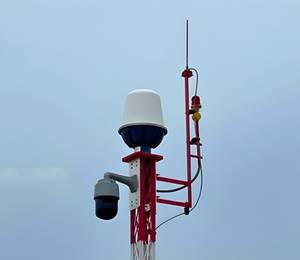Researchers at the University of Arizona are developing a fresh approach to cybersecurity modeled on the human central nervous system.
Inspiration for the project came from human biological responses; for example, how the body's immune system fights a virus and how a person will instinctively pull their fingers away from a burning hot surface before their brain has even received the message that the body is at risk of harm.
"I felt we could learn about how the body protects us by reacting to threats and maybe apply it to cyber by building a 'cyber immune system,'" said Salim Hariri, UA electrical and computer engineering professor and the project's principal investigator.
"We're trying to build these abilities where, when somebody attacks your computer, these measures can detect the attack and act on it before you're even aware something is compromised."
In contrast with security methods that deal with cyber-threats in a reactive way, the new system being constructed is being designed to function proactively. The plan is to use artificial intelligence and machine learning to train machines to recognize cyber-threats on their own, as a doctor might recognize diseases from their symptoms.
To stop the threats before they infect a network or device, researchers will also teach the machines how to recognize threats as they evolve and how to execute a wide range of cures. With an encyclopedia of remedies at their disposal, the machines will be able to search for the one that is most appropriate and automatically apply it to the threat.
"An attacker can reach hundreds of thousands of devices in a fraction of a second, so we need our ability to detect threats and protect a system to work just as quickly," said Hariri.
The National Nuclear Security Administration's Minority Serving Institution Partnership Program has awarded the project a $3 million grant to be paid over a three-year period. Under the terms of the grant, researchers will train students, especially underrepresented minorities, from the University of Arizona, Howard University, and Navajo Technical University as they work to develop new cybersecurity techniques.











